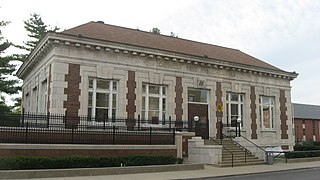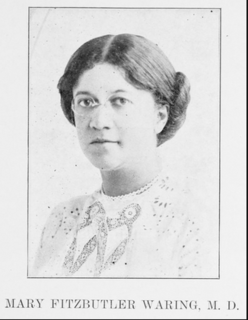
Hampton University is a private, historically Black, research university in Hampton, Virginia. Founded in 1868 as Hampton Agricultural and Industrial School, it was established by Black and White leaders of the American Missionary Association after the American Civil War to provide education to freedmen. The campus houses the Hampton University Museum, which is the oldest museum of the African diaspora in the United States and the oldest museum in the commonwealth of Virginia.First led by former Union General Samuel Chapman Armstrong, Hampton University's main campus is located on 314 acres in Hampton, Virginia, on the banks of the Hampton River. The university offers 90 programs, including 50 bachelor's degree programs, 25 master's degree programs and nine doctoral programs. The university has a satellite campus in Virginia Beach and also has online offerings. Hampton University is home to 16 research centers, including the Hampton University Proton Therapy Institute, the largest free-standing facility of its kind in the world. Hampton University is classified among "R2: Doctoral Universities – High research activity."

The Louisville Free Public Library (LFPL) is the public library system in Louisville, Kentucky and the largest public library system in the U.S. state of Kentucky.

Virginia Lacy Jones was an American librarian who throughout her 50-year career in the field pushed for the integration of public and academic libraries. She was one of the first African Americans to earn a PhD in Library Science and became dean of Atlanta University's School of Library Sciences.

Eliza Atkins Gleason was the first African American to receive a doctorate in Library Science. In 1941, she established and became the first Dean of the School of Library Service at Atlanta University and created a library education program that trained 90 percent of all African-American librarians by 1986.

The Louisville Free Public Library's Western Branch or Western Library is a public library in Louisville, Kentucky. It is a Carnegie library and is the first public library built for African Americans staffed entirely by African Americans. Previously known as Louisville Free Public Library, Western Colored Branch, and registered as a historic site in that name, it is a branch of the Louisville Free Public Library system. It is listed on the National Register of Historic Places.
NAACP in Kentucky is very active with branches all over the state, largest being in Louisville and Lexington. The Kentucky State Conference of NAACP continues today to fight against injustices and for the equality of all people.

Mary Ellen Britton (1855–1925) was an American physician, educator, suffragist, journalist and civil rights activist from Lexington, Kentucky. Britton was an original member of the Kentucky Negro Education Association, which formed in 1877. She was president of the Lexington Woman's Improvement Club and later served as a charter member of the Ladies Orphan Society which founded the Colored Orphan Industrial Home in Lexington, in 1892. During her lifetime she accomplished many things through the obstacles she faced. After teaching black children in Lexington public schools, she worked as a doctor from her home in Lexington. She specialized in hydrotherapy, electrotherapy and massage; and, she was officially granted her license to practice medicine in Lexington, Kentucky in 1902, making her the first woman doctor to be licensed in Lexington.

Rachel Davis Harris was an American librarian and activist. She was an influential female African American director and children's librarian of the Louisville Free Public Library, Western Colored Branch, one of the first segregated libraries built in the southern United States. She promoted library outreach to youths and equitable access to library services in the black community during the Jim Crow era.

Clarence Reginald "Skip" Graham was a prominent librarian and leader in the profession. He was president of the American Library Association from 1950 to 1951.

William Henry Steward was a civil rights activist from Louisville, Kentucky. In February 1876, he was appointed the first black letter carrier in Kentucky. He was the leading layman of the General Association of Negro Baptists in Kentucky and played a key role in the founding of Simmons College of Kentucky by the group in 1879. He continued to play an important role in the college during his life. He was also co-founder of the American Baptist, a journal associated with the group, and Steward went on to be the journal's editor. He was a leader in Louisville civic and public life, and played a role in extending educational opportunities in the city to black children. In 1897, his political associations led to his appointment as judge of registration and election for the Fifteenth Precinct of the Ninth Ward, overseeing voter registration for the election. This was the first appointment of an African American to such a position in Kentucky. He was elected president of the Afro-American Press Association in the 1890s He was a close associate of Booker T. Washington, and in the late 1890s and early 1900s, Steward was a prominent member of the National Afro-American Council, which was dominated by Washington. He was president of the council from 1904 to 1905. He was a lifelong opponent of segregation and was frequently involved in anti-Jim Crow law activities. In 1914 he helped found a Louisville branch of the National Association for the Advancement of Colored People (NAACP), which he left in 1920 to become a key player in the Commission on Interracial Cooperation (CIC). He was also a prominent freemason and twice elected Worshipful Master of the Grand Lodge of Kentucky.

Charles Henry Parrish was a minister and educator in Lexington and Louisville, Kentucky. He was the pastor at Calvary Baptist Church in Louisville from 1886 until his death in 1931. He was a professor and officer at Simmons College, and then served as the president of the Eckstein Institute from 1890 to 1912 and then of Simmons College from 1918 to 1931. His wife, Mary Virginia Cook Parrish and son, Charles H. Parrish Jr., were also noted educators.

Mary Fitzbutler Waring was an American physician, and president of the National Association of Colored Women's Clubs (NACW).
The Greenville Eight was a group of African American students, seven in high school and one in college, that successfully protested the segregated library system in Greenville, South Carolina in 1960. Among the eight was Jesse Jackson, a college freshman. As a result of the staged sit-in, the library system in the city integrated.

Marian M. Hadley was Nashville, Tennessee's first African American librarian, serving as the first librarian of the Nashville Negro Public Library, a branch of the Nashville Public Library for African American patrons. She went on to work at the Chicago Public Library for almost twenty years, building and promoting the library's collection of African American history and culture.

Florence Rising Curtis (1873-1944) was a library educator, chiefly known for her work as director of Hampton Institute Library School beginning in 1925. Curtis was born September 30, 1873 in Ogdensburg, New York. Her father was General Newton Martin Curtis and her mother was Emeline Clark Curtis. Curtis died October 6, 1944, in Richmond, Virginia. Curtis was known as a champion of education and training for Asian and African American library students through her work overseas and with the Hampton Institute Library School.
Francis M. Wood was an American educator and school administrator. Born and educated in Kentucky, Wood achieved his greatest prominence as the Director of Negro Schools for Baltimore City Public Schools, a role that he held for 18 years, from 1925 until his death.

Cyrus Field Adams was a Republican civil rights activist, author, teacher, newspaper manager and businessman.
Murray Atkins Walls (1899–1993) was an American high school teacher and civil rights activist from Indianapolis who fought for the integration of Louisville public libraries after being denied access to research for a speaking engagement in Louisville, Kentucky.

Lillian Haydon Childress Hall was an American librarian. Hall was the first professionally trained African American librarian in Indiana and the first African American to graduate from the Indiana state library school.















